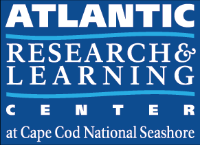
The Joshua A. Nickerson Conservation FellowshipThe Joshua A. Nickerson Conservation Fellowship, offered in partnership by the National Park Service and Friends of the Cape Cod National Seashore, has provided support to qualified individuals since 1992. At least one fellowship is awarded each year to individuals whose work will contribute to our knowledge of natural and cultural resources within Cape Cod National Seashore, and of the relationships of these resources to the local communities in which they are found. Proposals may be submitted for research in the broad areas of the natural and social sciences. Topics of interest include terrestrial and aquatic ecosystem processes, biotic and abiotic ecosystem components, cultural and natural resource management, and the political and social implications of resource protection and management. The amount of the fellowship varies from year to year. Housing may also be available to fellowship recipients while research is being conducted in the park. Laboratory equipment and field equipment may be available as well. 
How to ApplyThe application period for the 2025 Nickerson Fellowship is now open. Please use the links below to download the application packet, which describes the fellowship requirements in detail, as well as the fellowship coversheet. Applications must be received by March 28th, 2025. If you have any questions, please contact Geoff Sanders, Chief of Natural Resource Management and Science.
2024 Nickerson Fellowship RecipientsKatie Button – The Impact of Saltwater Intrusion on Macroinvertebrate Communities in the Herring River, Wellfleet, MA The Herring River estuary spans over 1,000 acres through the towns of Wellfleet and Truro, Massachusetts. In 1909, a manmade dike was constructed across the mouth of the river that muted saltwater exchange into the Herring River and transitioned saltmarsh into degraded freshwater habitat. The Herring River Restoration Project aims to replace the dike and gradually introduce saltwater into the estuary. In January of 2021, a tidal breach at Duck Harbor Beach caused seawater from Cape Cod Bay to overwash into freshwater portions of the Herring River. This project investigates how repeated saltwater exposure will affect the current freshwater macroinvertebrate community in comparison to 2014-2015 baseline data. This project sampled macroinvertebrates at 15 permanent sampling locations in three newly established zones: the impact zone and freshwater and marine reference zones. We hypothesized that the impact zone would have significant changes in the benthic macroinvertebrate structure, while the two reference zones would remain unchanged from the baseline study. There was a significant decrease in the mean abundance and species richness of macroinvertebrates across all three habitat strata from 2015 to 2023. The macroinvertebrate species assemblage significantly changed in the 2023 impact and reference fresh zone driven by the complete loss or decrease of a freshwater aquatic sow bug (Caecidotea sp.) and a freshwater fingernail clam (Sphaeriidae). These results anticipate that the Herring River macroinvertebrate assemblage will undergo significant changes in response to the salinization of freshwater as intolerant species are replaced by the recruitment of tolerant species in an open estuary habitat, with potential to support ecosystem function. Past Recipients & Final Report Topics2023 - Alexander Richards - Eastern Spadefoot Toad Surveillance for Fungal Disease on Cape Cod 2022 - Theodore Kuhn - Nitrogen concentrations in aquatic macrophyte and freshwater mussel tissue as an indicator of anthropogenic nitrogen loading to Cape Cod kettle ponds 2021 - Christine Hudak - Detecting Gray Seal Robustness Using Environmental (e)DNA analysis in the southern Gulf of Maine 2020 - Kathrine Sperry - Assessing the impact of salt marsh restoration techniques on Spartina alterniflora genetic variation 2020 - Stephen Tomasetti - From New York to Cape Cod: assessing the differential vulnerability of the Atlantic bay scallop to low-oxygen and high-temperature stress 2017 - Alia Al-Haf, Ph. D. - Quantifying Greenhouse Gas Emissions from Seagrass Meadows over a Nutrient Gradient in the Cape Cod National Seashore 2016 - Owen C. Nichols - Shellfish and horseshoe crab larval flux at the East Harbor tidal restoration site |
Last updated: March 31, 2025
